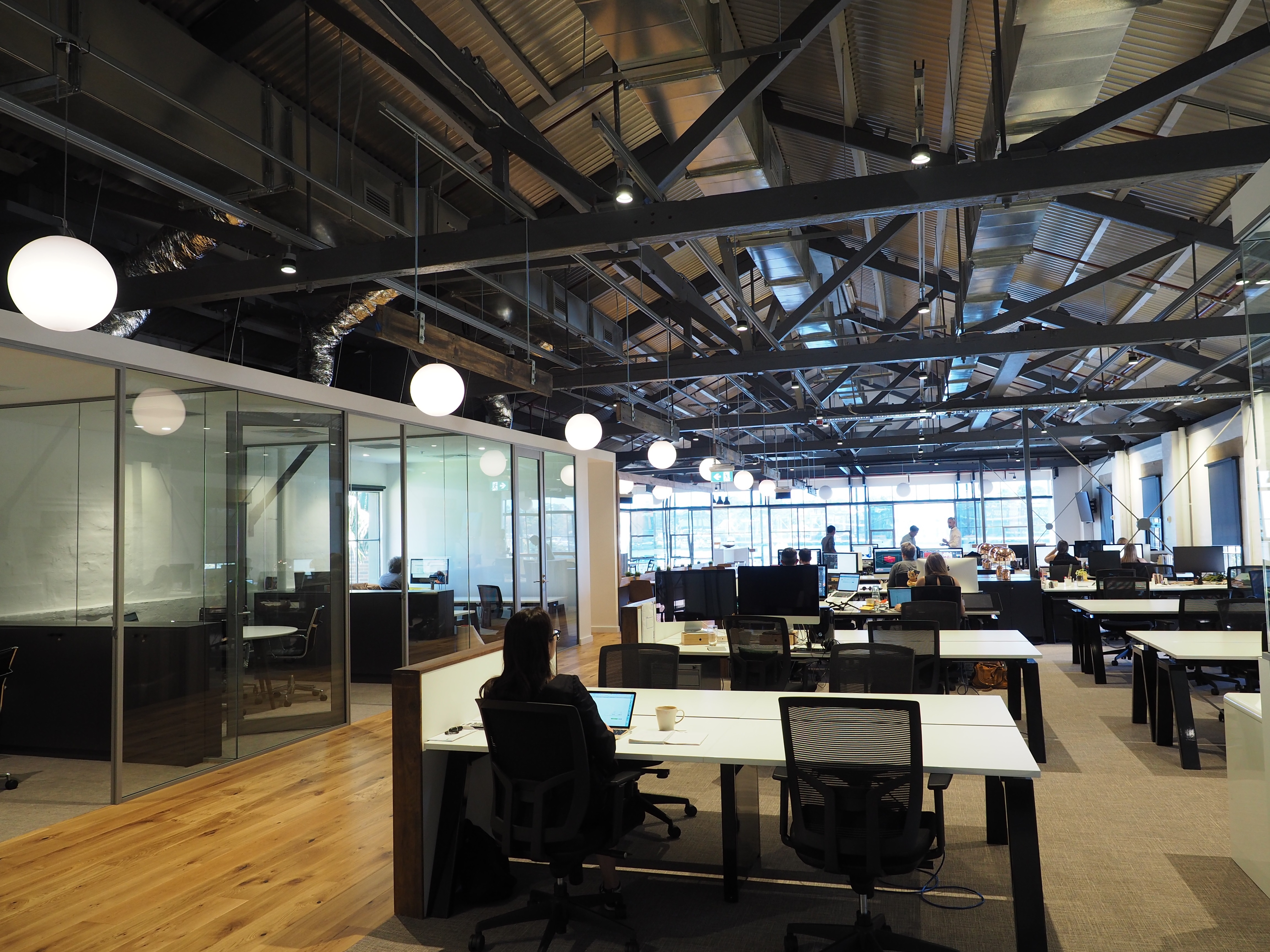Extending the SOHO with co-working spaces
Co-working spaces were once the domain of tech startups, but have since broadened their appeal to a wide variety of industries attracting everyone from small business owners, individual consultants, entrepreneurs, and even employees from big companies.
According to the ₁Global Coworking Map (coworkingmap.org), the number of co-working spaces has exploded from 9,000 seats in 100 cities in 2012 to 88,945 seats in over 796 cities (figure at time of publication, subject to change). Australia was one of the earlier adopters of the co-working movement outside of the US, with co-working spaces opening in the country as early as 2006, and the floodgates have since opened to every state.
Co-working spaces are all the rage and it's easy to see why.
The cost of renting a permanent office space can be an intimidating prospect for a number of small business owners looking to graduate from a home office to an official headquarters where employees can report to every day. Good commercial real estate can be difficult to find and it's even harder to find something in an affordable price range if your business is strapped for cash.
This is where a co-working space comes in -- a shared office where multiple businesses all work together under the same roof at a significantly lower cost than that of a traditional office lease. ₂According to 2016 research by real estate firm Knight Frank, the average cost of accommodation in a co-working space in the Sydney CBD ranged from $7,600 to $11,000/desk/year. This is a far cry below the equivalent cost of renting a traditional office in a prime building at $12,000 to $14,000/desk/year.

Here Coworking
Another major advantage of a co-working space is that it comes work-ready so you won't have to worry about lighting, electricity, air-conditioning, Wi-Fi, purchasing furniture, and all the other things that go into designing and constructing a newly leased office. A co-working space is available to you almost immediately once the arrangements are finalised, complete with desk space, conference rooms, and internet access.
Of course, co-working spaces aren't right for everyone. If you value privacy for your business and don't like the idea of sharing meeting rooms, bathrooms, kitchens, and other resources with other businesses, then a traditional office-space lease might be a better choice.
But isolating your business from the world around you also means you miss out on the benefits of networking with like-minded professionals that a co-working space invariably brings. A good co-working space doesn't just rent out desks -- it carefully evaluates every applicant to ensure their business practice brings value to the spaceand, in turn, is more likely to refer businesses within the co-working community network.
Many co-working spaces also organise regular events and professional meet-ups to help their occupants get to know each other and find ways to work together.
According to co-founder, ₃Galvin Scott Davis, of Here, a co-working space located in the heart of Sydney, the creative and tech companies that make up the bulk of his tenancy are never short of resources.
"Within weeks we have had more than four companies who have created tangible opportunities for other tenants that have turned into profitable work. One reason for this is that these like-minded businesses allow other tenants to increase their offering of services by partnering with other companies in-house," Davis said.
"We call it 'insourcing' not 'outsourcing'."
While co-working neighbours can make all the difference, you don't get to choose everyone in your immediate workspace. For this reason, it's worth finding out who the other businesses are in the space before you sign up. In most cases, you'll find that there are a lot of other startups and small companies like yours, so you can benefit from each other's experiences and connections.
The explosion in co-working spaces in recent years has created healthy competition as far as pricing and included amenities are concerned. The ability to have a secure, serviced, professional workspace at the fraction of a cost is of huge value even to sole traders.
However, Davis argues that the surge in popularity has created a headcount mentality among some co-working spaces. Davis cautioned SMBs to look for a co-working space that actually takes an interest in what they do as opposed to those that might only be concerned with making up the numbers.
"Many co-working spaces are cramming hundreds to thousands of people into one space," he said.
"Look for a space that is not agnostic. Co-working should always have community at the core. Humans are designed to work in groups of around 70 people. This number is what builds community, conversation, co-living environments. This means that everyone has an individual voice that can be heard," he added.
"A great co-working space wants to create a space for its tenants that they are proud of and gives them a sense of ownership. This comes through offering an environment that is a joy to work in. The more comfortable people are, the happier and more productive they are."
The number of companies utilizing co-working spaces will increase, especially as it becomes a viable option for businesses of all sizes. But that doesn't mean a shared office space is right for everyone.
Get more advice on what you need to consider when you are looking to make a start of business.
Find out more about the popular co-working spaces in Sydney, Melbourne and Brisbane.
Left to right: Jason Pollard , Karen James, Galvin Scott